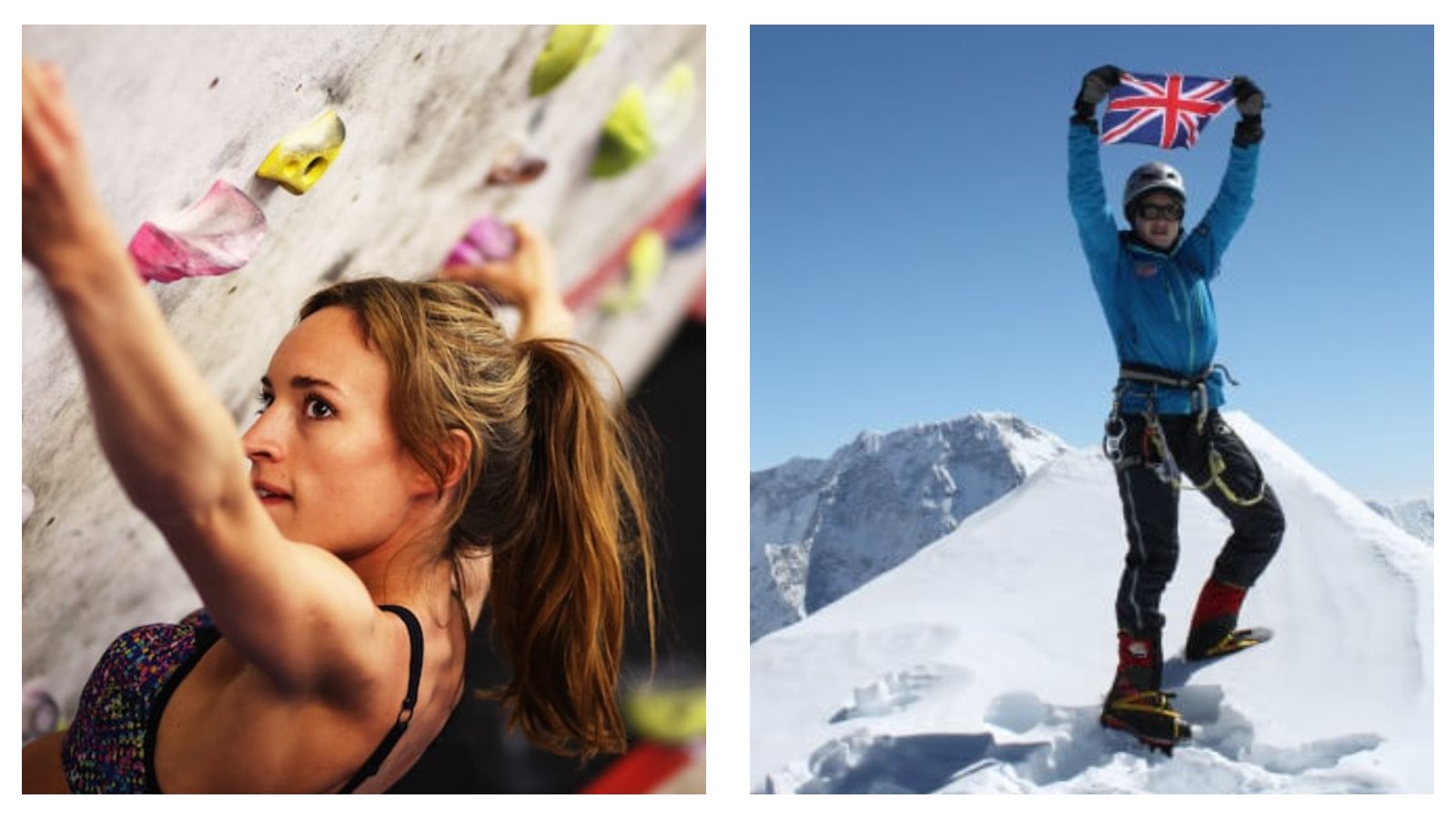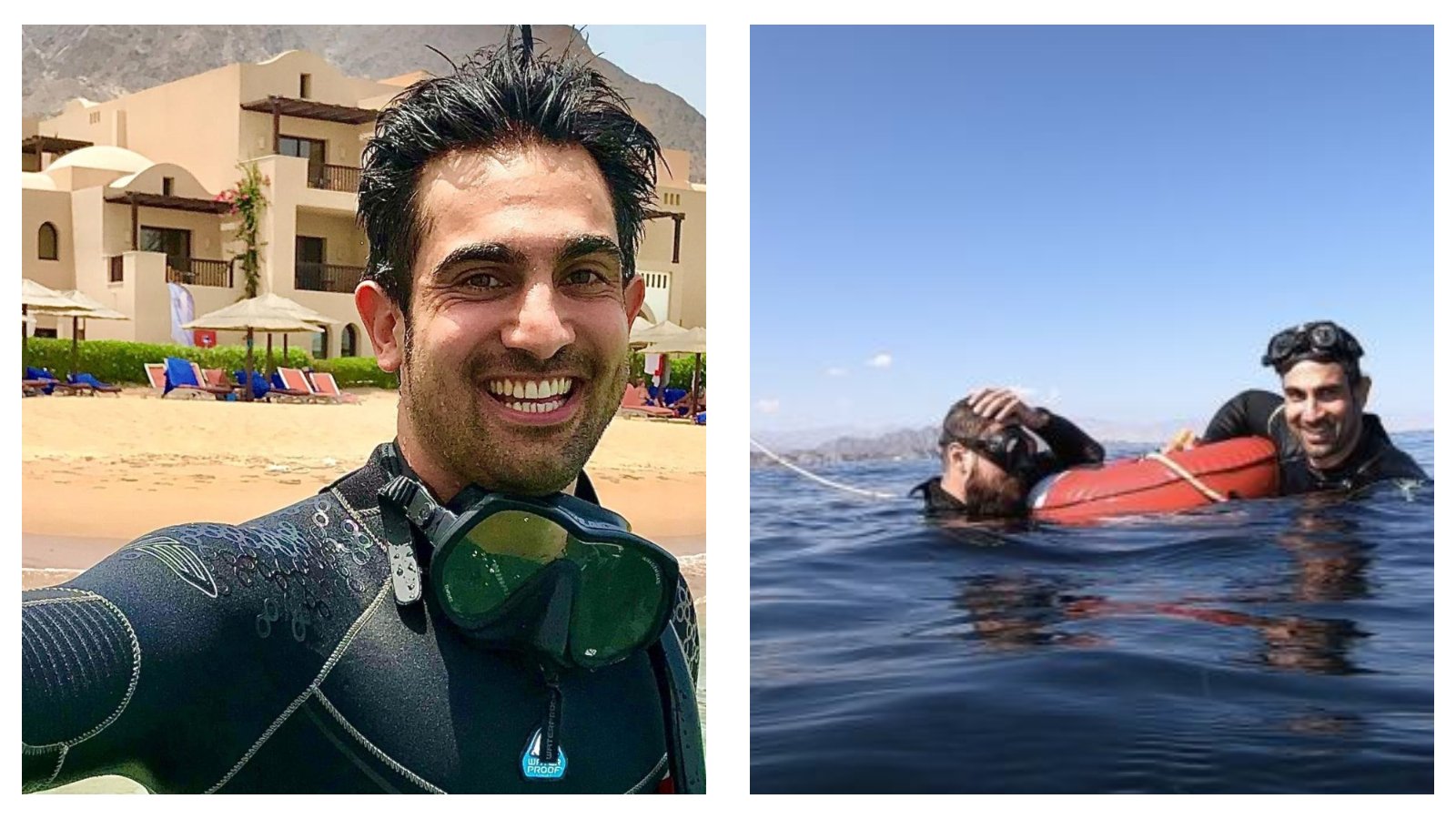5,000 Miles of grit: Elise Downing on adventure, self-doubt and starting before you're ready
Elise Downing made headlines as the first woman to run a full loop of the British coastline, covering more than 5,000 miles on foot.
But beyond the extraordinary physical feat, it’s her humour, honesty, and sheer determination that have inspired audiences across the country.
Elise has since become one of the UK’s most in-demand high-performance speakers, captivating audiences with her insights into mindset, resilience and pushing beyond perceived limits.
In this exclusive interview with The Champions Speakers Agency, she opens up about mental hurdles, finding motivation, and why starting - before you feel ready - can be your biggest breakthrough.
Q: What mental qualities are needed to successfully run 5,000 miles?
Elise Downing: “Yeah, I think so. I think in terms of like mental qualities you need to do a really long run, it's kind of easy to say, I guess all the usual ones like mental toughness and stubbornness and drive and that kind of thing. And obviously, I think it goes without saying you do need those things.
“But I think for me, the main thing that kind of kept me going was, I think, like trying to really cling onto this feeling of like gratitude to even be doing the whole thing.
“I was so lucky to be on this adventure and I just tried really, really hard to keep reminding myself of that, rather than thinking about it.
“So, trying to think about the experience really positively or as something I was lucky to be doing, even on the inevitable lots of really hard days, rather than to kind of like see it as a chore that I needed to like grip through, and I think that did really help.
“So it's a bit cheesy, but I used to, on a really hard day, just come up with like five things to be grateful for.
“Sometimes they were tiny, it'd just be like, oh, I had some good porridge for breakfast, or someone waved at me and said hello, but it did really help me to kind of reframe that experience.
“And also try and not—I think it's always easy to think the grass is greener. So when you want to quit, it's like, well, I'll quit and everything would be great, and I tried to think, well, no, because if I quit this adventure, what would I actually realistically be doing instead? So, but yeah, definitely just try to think about it as a positive experience rather than thinking, yeah, this is a chore.”
READ MORE: Challenging limits, changing lives: Amar Latif's journey through sightless travel
Q: What was the biggest hurdle you had to overcome while running 5,000 miles?
Elise Downing: “I think there were kind of two, really. The first one was definitely those feelings of self-doubt.
“When I set off, I had absolutely no idea what I was doing. I wasn't an experienced ultra runner. I was completely naive about the whole experience, and I think the thing I found I doubted the most was not necessarily my ability to complete it, but the sort of way I was doing it.
“I met so many amazing people on the way, lots of really experienced runners came up to do this with me, and they were fantastic, and they were all very well-meaning, but they kind of bombarded me with advice based on their own experiences.
“It just got overwhelming sometimes, because although they were amazing runners, ultimately they hadn't ever been on a 5,000-mile running adventure. They hadn't done what I was doing.
“It definitely took me a while to get into the swing of things and think, no, the way I'm doing it is okay, and it's all right to block out everyone - you don't have to take on everyone else's opinion - and just kind of become a bit more confident in the fact that I was doing this thing, and I was doing it in the right way.
“But then I think on the flip side, the other thing that was a bit of a hurdle was, I set off with a tent on my back.
“I thought I'd be camping the whole way, but I ended up staying with more than 200 complete strangers in the end. So people like friends of friends, people from local running clubs, lots of people from social media. It became this real community, and it was amazing.
“I think at the beginning I really struggled with letting people help. So I think it's fine to think, right, don't worry, I don't need everyone else's opinion, but actually letting people in is really helpful.
“I think I just felt like I was a bit of a burden, but people only offer to help you if they want to help you. So I think that letting other people into your thing, even if on paper it's a solo adventure, a solo challenge, whatever it might be, people want to help you, and they're so there for you, letting people in can really help your experience.
“So I guess those two are a little bit contradictory, but they were definitely my biggest hurdles. Once I overcame them, the whole thing became a lot easier.”
YOU MAY ALSO LIKE: Beyond the summit: Bonita Norris on fear, focus and finding strength in the climb
Q: As an adventurer, what keeps you motivated when you want to quit?
Elise Downing: “Before thinking about what keeps me motivated when I want to quit, I try to think about what was the main reason I wanted to quit.
“And I think for me, whether it was doing that adventure or any kind of big challenges like this, it's that feeling of never-endingness.
“For me, it becomes so overwhelming, and you stop being able to think, can I do like this day, this mile? Because you're just so worried about everything that's to come in the future.
“I think that, like, we often really want like instant gratification, and when you're doing a really long project - that could be like, yeah, a big business project, a big adventure, writing a book, could be anything - you don't get that.
“It takes a long time for that gratification to come. But you have to stick with it to get to those rewarding, longer-term goals.
“I think to overcome that, I try to remember that it doesn't actually matter if it feels impossible right now.
“I listened to a really interesting podcast a while ago, and somebody was talking about their journey to sobriety, so a little bit different, but they basically said that on day one, it doesn't matter if you don't know how to get to year ten.
“I think you can apply that to anything really.
“It's really easy to look at a big challenge and think, well, I can't run 5,000 miles or whatever it might be. But you don't need to be able to, you just need to run the first day and then the next day and then the next day.
“I think when I wanted to quit, it was just like breaking it down and like being quite present and thinking: stop worrying about the next eight months to come and just thinking, can I run this mile? Can I run this day? Can I do this week?
“The answer to that question is normally yes, and you just have to try and block out the rest of it, because that's the thing that makes it feel impossible.”
EXPLORE MORE: Charting the unknown: Paris Norriss on resilience, risk and the power of storytelling
Q: How do businesses benefit from your insight into determination and self-doubt?
Elise Downing: “So I think when I'm telling a story about running around the country, I try really hard to be really honest about the whole experience and talk about how unqualified I was to be setting off.
“Frankly, I wasn't an experienced runner; I hadn't done lots of adventures.
“Sometimes I read books about people doing adventures, and they make it sound quite inaccessible, and they make themselves sound really brave and really adventurous.
“You're like, well, that's an amazing thing you've done, I can't relate to that, I could never do that.
“I think that's what stops us getting to the start line a lot of the time, because you think, well, I couldn't do that, so I won't even bother.
“So I think what I try and get across to businesses is that, yeah, it doesn't matter how unqualified you are right now, it doesn't matter how out of your depth you feel, you can still have a go at that big thing.
“I think it's through being really honest with how I tell my story, I try and get that across, and I hope that that will kind of inspire people to reach a bit further and achieve their potential - whether that's personally or professionally.”
This exclusive interview with Elise Downing was conducted by Chris Tompkins of The Motivational Speakers Agency.
READ NEXT: What space taught me about life on Earth: An interview with astronaut Claude Nicollier




